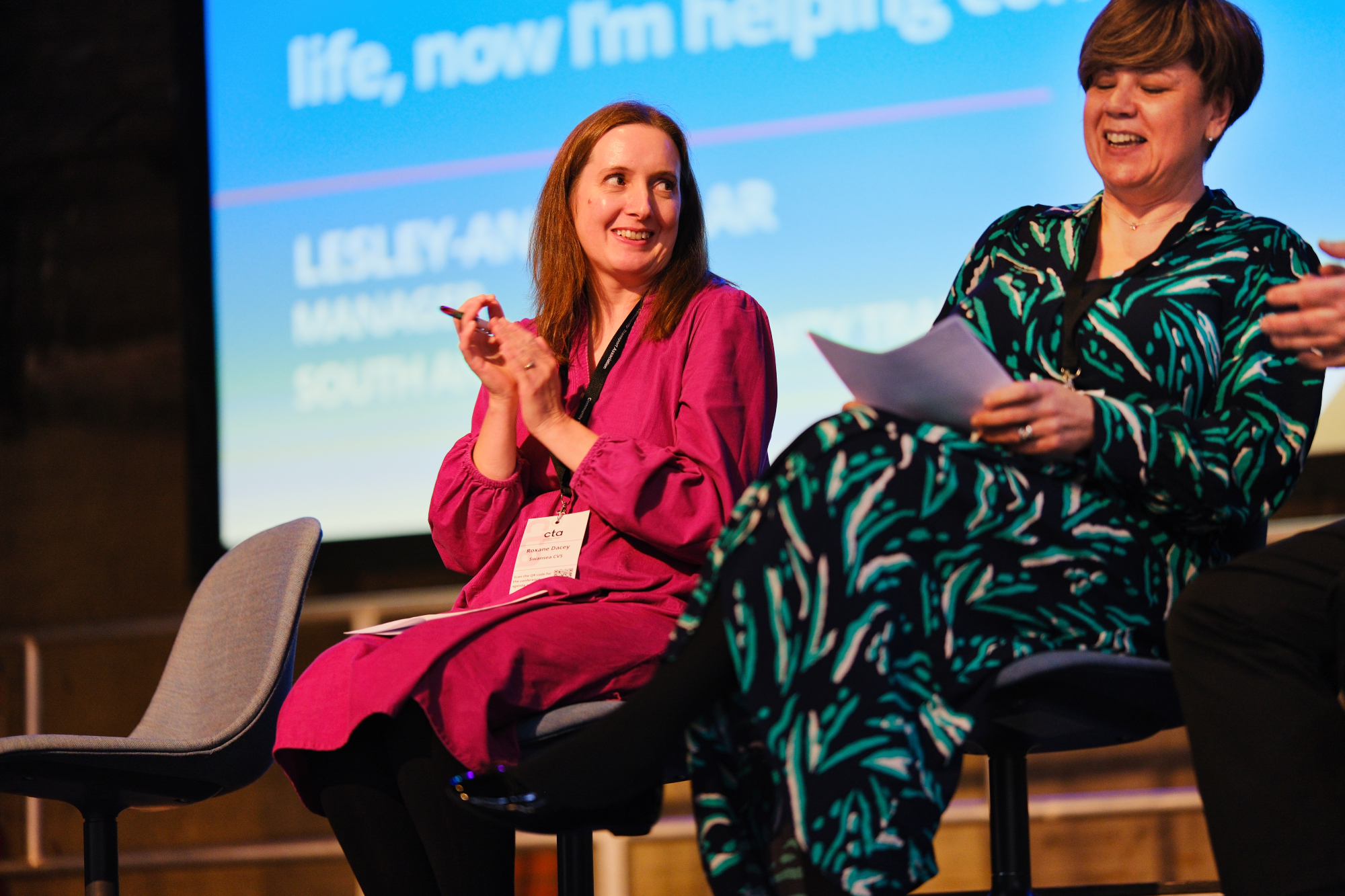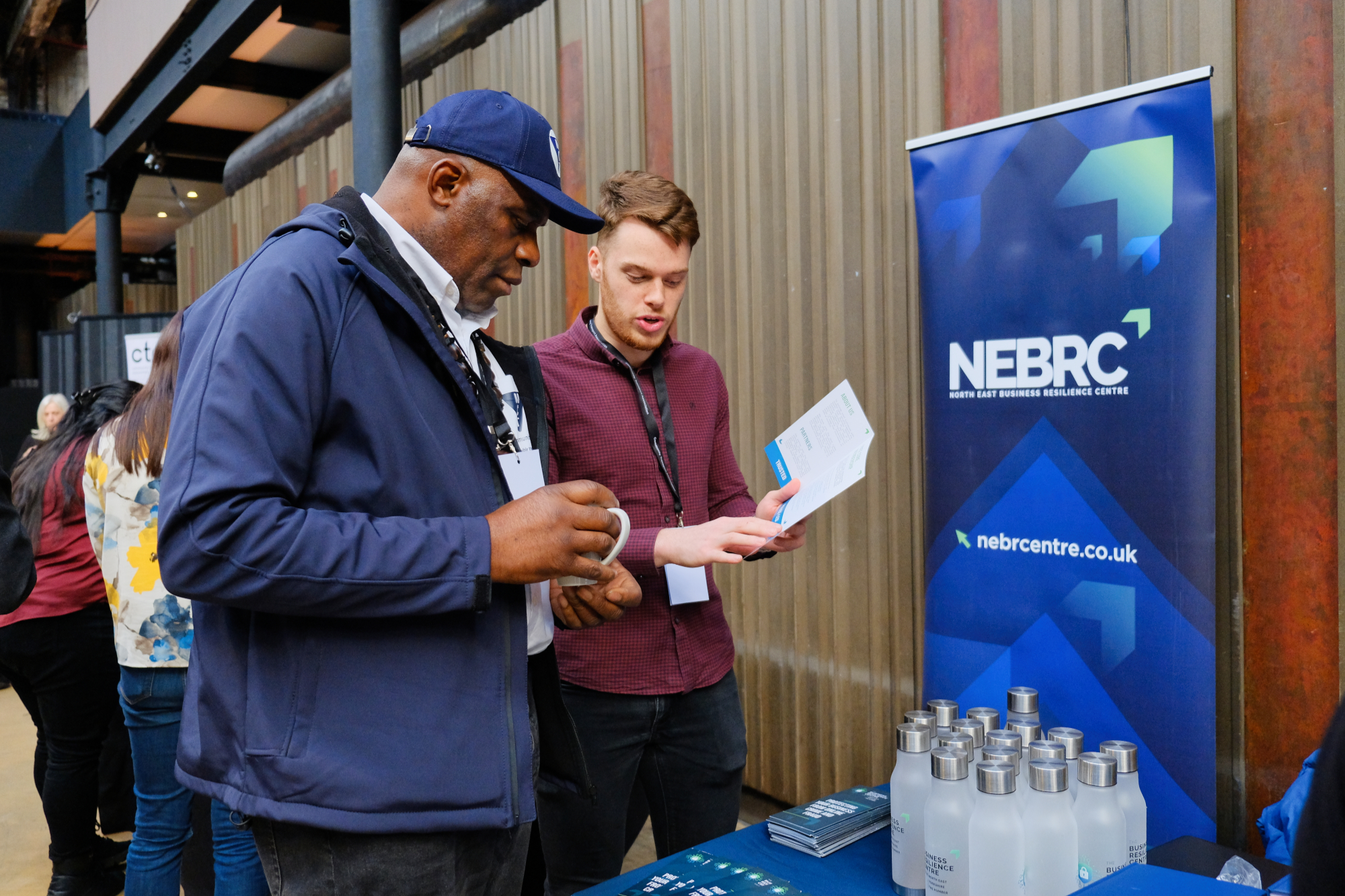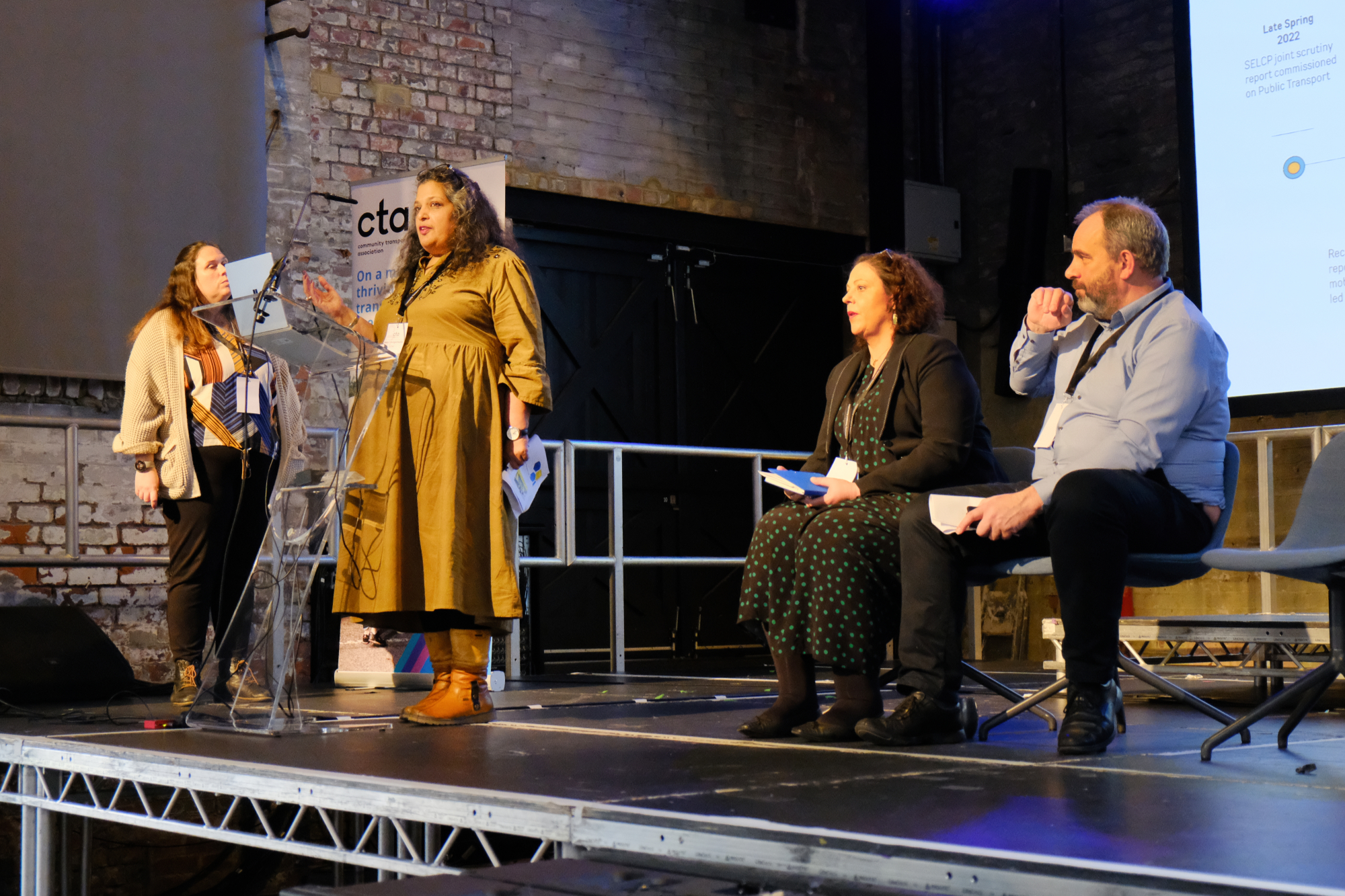CT24 The Voice of the Passenger Reflections - 'Community Transport changed my life – now I am helping change others'
We continue our series of CT24 The Voice of the Passenger Conference reflections with a very special blog. Lesley-Ann Millar, Manager at South Antrim Community Transport shares a heart-warming and insightful story on how CT has shaped her professional and personal life.
I am sharing my story with you today; I have called it ‘Community Transport changed my life – now I am helping change others.’ A little bit of background about me, I am married to Gary with two grown-up boys and have been working in South Antrim Community Transport (SACT) for fifteen and a half years.
Gary and I met in 2003, moved in together and soon after our family started. In and around 2004, Gary started suffering from headaches and this progressed from the occasional headache to crippling migraines and times when his vision would have black spots. This went on for around 5 years, and despite numerous visits to our GP, the root cause of his headaches and vision loss was not detected.
Gary went to the optician after suffering for years, and it was there that he was diagnosed with papilledema, a swelling behind the eye caused by intracranial pressure and advised to attend A&E immediately. It was in the Royal Victoria Hospital the next day that Gary was told that he had a brain tumour, the size of a satsuma. The optician said that this was the first time he had come across papilledema and hoped that he never would again. We do believe that the optician saved Garys life.

At this time in my life, I was working as a kitchen designer and oversaw the kitchen fitting in several building sites, which was a stressful job, not to add the mother of two boys, who were 3 and 10 at the time. Gary was working for the same company as a remedial kitchen fitter.
With an uncertain future, I reluctantly made the decision to hand my notice in and care for my husband post op. My friend from the kitchen company where I had worked rang me to check in on us regularly, and during one of the calls Carol advised that a transport charity about two miles from my home were looking for a part-time administrator.
At this stage Gary had had his brain tumor removed, then suffered a stroke afterwards, and after spending around 8 weeks in hospital he was allowed home. With a mortgage to pay and Gary unable to go back to his job as a kitchen fitter, I made the decision to apply for the job with South Antrim Community Transport. I was interviewed, and Tom, the Manager at the time, agreed that should my husband need me at home I could make up the hours later. This caveat meant that I could work 10 minutes from home, part-time, and still look after my husband. I started working for SACT in January 2010 and have never looked back.
Working for South Antrim Community Transport has opened my eyes to how vitally important Community Transport is to rural dwellers. My husband was not allowed to drive for a year, and he was able to avail himself of the transport services when I was not at home. Being on the bus, meeting other people and not sitting at home all day did the world of good for his mental health.
I was not aware of the support organisations that are out there, until I joined South Antrim. Our passengers travel to Men and Woman’s Sheds, Tea dancing at the Town Hall, to attended Visually Impaired Groups, to mental health appointments, for example. One of our Directors who has visual impairment used the transport to travel to our local leisure Centre where she completed the Couch to 5k training and now regularly does Parkrun, with the aid of a sighted guide.
Community Transport is now my biggest passion. Seeing firsthand the physical and mental benefits it brings not only to those passengers with a disability, but also those people living in rural areas who have seen their bus routes cut and, in some cases, taken away completely.
As a Manager, I am proud to lead a very passionate team of office staff and am supported by a dedicated Board of Directors, many of whom were responsible for setting up the organisation 20 years ago.
My husband has made a good recovery – but is restricted in how much he can physically do. I still provide a caring role for my husband. He is currently driving for us two days a week as a paid driver, and when he feels good, he also volunteers in his own car.
As our numbers continue to grow, we continue to seek out funding opportunities as the threat of cuts to our once ‘core’ funding hangs over us every year. We lobby our government continuously to ask that our funding moves from the discretionary to the statutory, and we need multi-year funding instead of the one-year funding model we currently work under.
Last year, with a very real threat of having our funding discontinued, I managed to get a letter signed by all five political parties in Northern Ireland signed and sent to the Permanent Secretary of DFI, demanding that our funding be reinstated. The political parties in Northern Ireland very rarely agree on anything, but this was one thing they all agreed on.
Rural inhabitants and people with disabilities deserve to have the same access to transport as people living in big cities. They should not be restricted to how often they can access transport, and which days of the week they can use it.

Day and daily we see the impact of the services we provide to our service users. On a recent bus journey, I spoke to a regular user of our service, a 99-year-old lady who uses our transport on a weekly basis to go to the hairdresser. She was telling me that her family suggested that the hairdresser come to her – and her reply was: 'I spend enough time at home on my own, I want to be out and about and have a bit of craic with the driver, other passengers on the bus and in the hairdressers. It keeps me young!'
We hear testimonies of those family members who have had to make the difficult decision to put a parent into a nursing home. Most of these users have mobility issues, and conventional transport does not lend itself to transport their loved ones back home for the day. The sheer joy in being able to bring their loved one’s home, maybe once a week or a fortnight to spend time in their home environment is immeasurable.
Providing transport for young adults with additional needs to further education colleges increases their independence.
Taking the burden off family members who are working to get their parents to medical appointments when they cannot get the time off work is so important.
Taking regular users to the Town Hall on a weekly basis to enjoy a tea dance, a bit of exercise, and a chance to catch up, well, the mental health value of this is so important.
The social value of all these things which people who have access to a car or regular public transport take for granted must not be underestimated – last year our own organisation provided £1 million pounds of social value to our service users.
Community transport changes people lives – I should know – it changed my mine.
To find our more about South Antrim Community Transport, click here.
For those unable to join us at the conference, you can access the power point presentations from all of our speakers, here.


